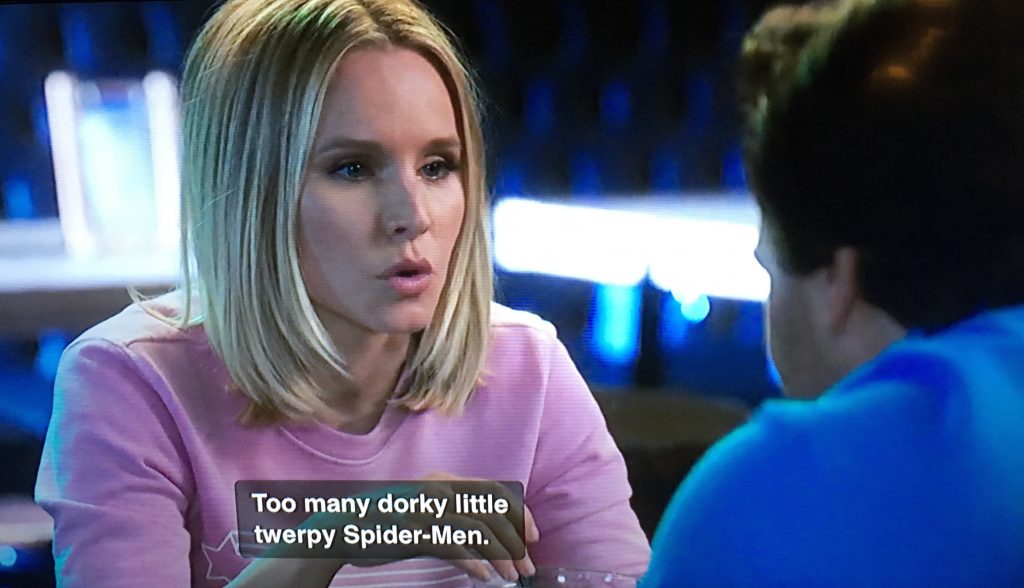Avengers: Endgame was released a month ago and has since become one of the top grossing films worldwide. People cannot stop talking about this movie, or, more specifically, the ending.
SPOILER WARNING
SERIOUSLY
THIS POST IS LITERALLY ABOUT HOW THE FILM ENDS
Since before Avengers: Infinity War (2018) was released last year, I was predicting that Steve Rogers would not make it out of the Infinity War (note the original titles of Avengers 3 and 4 were “Infinity War Part I” and “Infinity War Part II” and all the films that have been released are collectively known as “The Infinity Saga”) alive because he is a man living in a foreign time and has nothing in his life outside of the Avengers/fighting the good fight in his life. Meanwhile, I was certain that Tony Stark, who has a life, a woman he loves, and a hugely successful family business, would survive to become support staff, not unlike what he does in the comics from time to time.
I was so wrong.
At first, I was so mad! People around me are sobbing (I always cry at movies– previews make me teary eyed) and I am just sitting there in shock. I left the theater salty as hell and it took sleeping on it for me to process and come to some conclusions.
First, let me start by saying that, in hindsight, I’m glad I was wrong. Being so surprised actually improved my experience. While I adore being right, I think it would’ve been a little anti-climatic for me had it ended the way I anticipated– at least that’s what I keep telling myself.
Now, the ending itself is this: Tony Stark/Iron Man sacrifices his life using his own Infinity Gauntlet to– snap!— destroy Thanos and his forces. He cannot handle the strain on his body and after a tearful farewell– particularly to Pepper Potts and Peter Parker/Spider-Man– he dies. In Captain America: Civil War (2016), Tony talks about how he can’t stop being Iron Man, because deep down he doesn’t want to stop. The general premise of Iron Man 3 (2013) is that he cannot bring himself to stop. Therefore, narratively, it makes sense that the only way for him to stop is to be stopped; he’s not going to stop while he’s still alive.
It’s also important to note that while there is no end credit scene, the last thing you see after the credits is the Marvel Studios logo with the sound of Tony Stark building his first Iron Man suit in the desert playing in the background. In many ways, the series has been his journey, specifically, and now it has come to an end.
Steve Rogers never wields the Infinity Gauntlet, but does gain possession and control of Mjolnir. Proving himself worthy, Steve survives the final battle and is the one to return the Infinity Stones and Mjolnir to where they belong in the timelines. However, Steve doesn’t just return those borrowed items. Instead of coming back to the present, he decides to find Peggy Carter in the past and they finally get that dance they talked about all those years ago and– it is implied– build a life together. In the present, Sam Wilson/Falcon and Bucky Barnes/Winter Soldier turn from watching Steve disappear to see an elderly Steve sitting on a bench waiting for them. He then passes on the shield and Captain America mantle to Sam.
So, there’s a
I contend that Steve was in love with both Bucky and Peggy. He chose to have a life with Peggy because he could travel to a time not long after World War II and build a life with her in a world that is more familiar to him, one that would be peaceful, especially if he has to remain hidden from the public and his past self. Okay, but why not Bucky from the Russians/Hydra before he becomes the Winter Solider? I think that would have a greater impact on the timeline (as far as Steve’s awareness and the MCU narrative go).
Sam Wilson is Captain America in the comic books, but so is Bucky Barnes. So, why go with Sam and not Bucky? While I will forever maintain that the story of Steve and Bucky is an unfulfilled love story, they are often foils for each other. Sam, however, is consistently depicted as a parallel to Steve, from his first introduction in Captain America: The Winter Soldier (2014). They’ve been through similar experiences (losing a ‘wingman’) and are both natural leaders (Sam leads the charge when the cavalry arrives in Endgame: “On your left” indeed). Also, I think it’s much more meaningful for Sam. Bucky is still bogged down by guilt and seventy years of brainwashing and torture. He does not want to be Captain America, and probably assumes he doesn’t deserve it. Sam has looked up to Captain America his whole life. To be a part of that legacy is a hugely touching gesture for Sam.
Now, while we don’t see it for sure, we know that Steve gets married, presumably to Peggy (who also never changed her maiden name– perhaps to keep her husband safe/secret?) while Tony is given a touching funeral. Pepper and Tony had five years together building a life outside of all the superhero stuff, had a daughter. So, in the end, I believe that Steve chooses to live a life for Tony, who can no longer do so. Tony was ready to hang up the suit– and did for a time– before being dragged back in by Steve. As a tribute– and perhaps out of guilt– Steve decides to do what Tony can’t and gets a life away from it. I think that it makes a lot of sense for Steve to live a peaceful incognito life to honor Tony and his memory, which conveniently explains why old man Steve Rogers wasn’t out fighting while his past self was frozen in the Valkyrie.
For years, producer Kevin Feige has said that everything changes after the Infinity War. That what comes next will be very different from what we’ve seen. Well, of the original Avengers (Black Widow, Captain America, Hawkeye, Hulk, Iron Man, Thor) only Hulk and Thor are still alive/not clearly retired, but it’s clear that Hulk has found a new life as “Professor Hulk” while The Dude Thor is traveling with the Guardians of the Galaxy. We know that there are already a number of movies and canonical TV shows on their way, including Spider-Man: Far From Home which is set to wrap up Phase 3 this July, and should give us a better sense of what this new world looks like. After 11 years and 22 movies, I think it’s safe to say Feige delivered on his promise. As I’ve said in many previous posts, I look forward to seeing what gets announced next.

